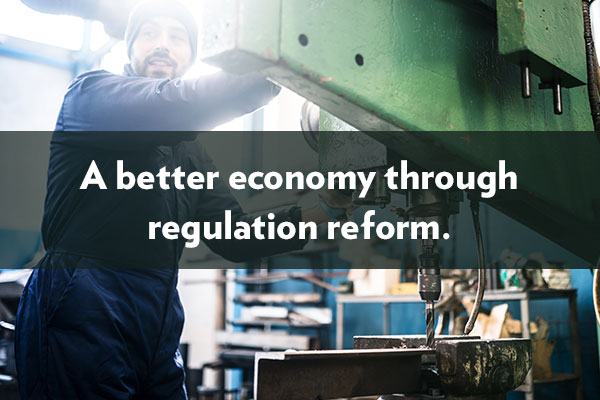Media

House Tackles Pa.’s Heavy Regulatory Burden
Despite record low unemployment and rising wages, three-quarters of Pennsylvania counties have lost residents to other counties and states.
Why?
One key factor is our poor business climate. According to the Tax Foundation’s 2019 State Business Tax Climate Index, Pennsylvania ranks 34th for business climate. Similarly, the commonwealth was only 37th in ALEC-Laffer’s economic outlook index and 34th in U.S. News and World Report’s state economy ranking.
Luckily, Pennsylvania can turn this economic tide by reforming taxes and state regulations.
Federal tax reform reduced the tax burden, resulting in businesses reinvesting in Pennsylvania and higher wages and benefits for employees. Now, Pennsylvania is looking to reduce its third-highest corporate tax rate.
Regulatory reform is essential too. Small businesses report waiting years for permit approval from the Department of Environmental Protection. The Mercatus Center finds Pennsylvania maintains 153,661 restrictions, roughly 12.8 million words. It would take an individual about 713 hours—or just under 18 weeks—to read every regulation.
Legislation in the House would streamline the regulatory process and increase the scrutiny of existing and proposed regulations.
- HB 430 (Rep. Kerry Benninghoff) would allow the General Assembly to repeal regulations through a concurrent resolution.
- HB 509 (Rep. Greg Rothman) would create an online tracking system for state permits to cut down the countless hours entrepreneurs spend navigating the complex permitting process.
- HB 806 (Rep. Dawn Keefer) would require the General Assembly to approve any economically significant regulation, defined as an impact of $1 million or more per year for the state, municipalities and/or the business community.
- HB 1055 (Rep. Kate Klunk) would create an Office of the Repealer to review or amend current regulations. Sen. Kristin Phillips-Hill introduced a similar proposal in the Senate.
The commonwealth has tremendous opportunities for economic growth. If lawmakers can lighten our heavy tax burden and improve the regulatory climate, Pennsylvania will retain workers and attract new talent. That means more jobs, higher wages, and a brighter future for all Pennsylvanians.